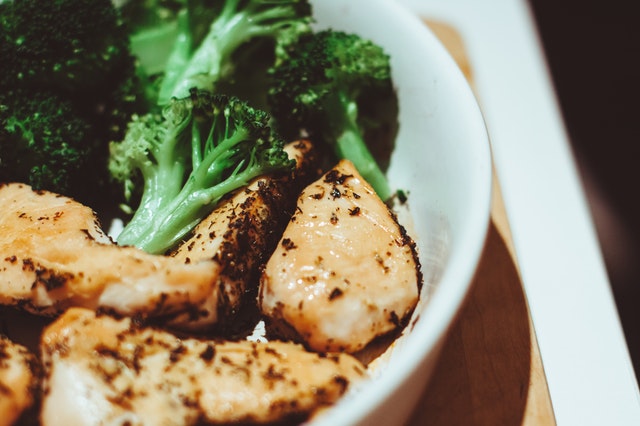Protein: How much do you really consume?
We debunk what you might think about protein intake and offer tips on how to get MORE from the protein you eat.

We know we need protein in our diet. It's a complex subject but ultimately we know it's important for many reasons including:
- Growth and tissue repair
- Providing the body with fuel and energy
- Enzyme and hormone production
Most people have a desire for more protein to achieve bigger or stronger muscles. Some of us actually calculate what we think we need, scouring labels to find high levels of protein and eating the calculated amount feeling accomplished, expecting to grow stronger and become a better athlete.
STOP...and answer this question:
How do you know your body is actually using ALL the protein you consume?
We can't tell for sure how much of the protein that enters the body via food is digested into our system. There's just no way to check on that. So, having a strict calculator and expecting results from that is likely to be unproductive.
The recommended daily allowances will differ between people. For example, if you are a desk worker and inactive you will not need to consume as much than if you regularly lift weights or do an aerobic activity such as running, cycling, football, or even the recreational gym goer. Generally speaking, someone who is active will have a greater need for muscle repair.
So now we know that all the protein we consume may not actually be benefitting us, how can we maximise our protein intake?
Do these THREE things:
- Eat more foods that are complete proteins
Examples: Meat, fish, eggs, chickpeas, kidney beans, soy beans, chia and pumpkin seeds, cauliflower, spinach, broccoli, potatoes and quinea.
Complete proteins contain all of the essesntial amino acids required in the diet. There are 9 essential amino acids in total. These are only gained through what we consume and cannot be produced by the body. If all 9 amino acids are present then the liver can start producing non-essential acids, of which there are 11.
This will give you a good chance of gaining the benefit from the protein we eat to get those stronger muscles. - Improve your digestion
Don't go mad with all those chicken breasts thinking that's how to get ripped. Meat isn't the easiest of foods to digest. Think of it like this: a baked potato contains protein, not as much as a chicken breast but it is more easily digestible. Your body can break down the components of a potato far easier and quicker than the chicken and nutrients have a better chance of entering your system. As there are so many food types that contain protein, you don't need to eat meat every day!
Do your gut a favour. Eat slowly, chew well, don't over eat, slow cook meat, and wait at least two hours after eating to have a drink to avoid diluting your stomach acid. - Eat at regular times
Eat your protein throughout the day, not just at one meal. Avoid snacking so as not to awaken the digestive system too often.
Your stomach is roughly the size of a fist so don't overload it. The stomach breaks down protein-rich foods into amino acids which then move into the small intestine for absorption. A fuller stomach will take longer to break food down will have to work harder.
The take-home
Stop calculating your protein intake! Concentrate more on how you consume protein. We cannot accurately determine the exact amount of protein that the body digests and absorbs. But we can ensure we consume the right types of protein. And we can make sure we eat them in the most effective way.
Written by: Cross Massage Therapy